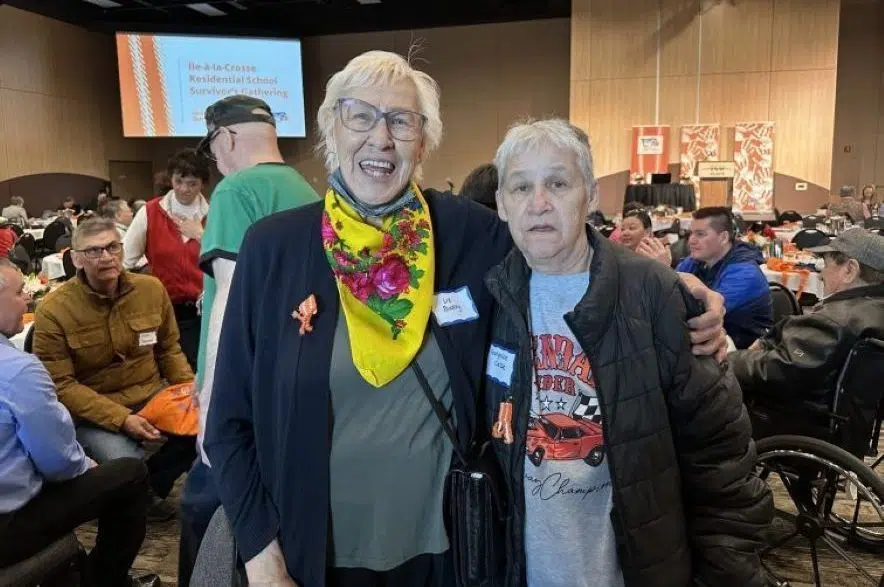Survivors of the Ile-a-la-Crosse residential school are gathering and sharing their stories at TCU Place in Saskatoon.
Mayor of Ile-a-la-Crosse Duane Favel is attending the event and is also an intergenerational residential school survivor.
He said his father is a survivor of the residential school and his mother is a survivor of the school in Beauval.
“They had a life of what it shouldn’t have been because of their experiences there — the trauma, the abuse that they went through,” Favel said.
He added they went through the loss of language, the loss of parenting skills and the lack of love and affection.
“They lost their tradition (and) their culture by not being able to function when they got back home,” Favel said.
According to Favel, the trauma from the residential school system continues to impact children today.
Growing up with parents impacted by residential schools, he witnessed things within the family and the community.
“There’s a lot of angry people within the community, especially the survivors. (They’re) not understanding where that anger was coming from, not understanding the dysfunction that they carry,” he said.
“Almost normalizing that families and communities was a long way from the wellness that we should’ve experienced.”
Favel explained the gathering has been bittersweet to see all of the residential school survivors in the same room for the first time.
“It was very impactful emotionally. For a lot of (survivors) psychologically and seeing one another and sharing their experiences had a lot of impact on the survivors,” he said.
Favel added while they were glad to see one another, the survivors are looking to the day when they will be acknowledged.
“Regardless of what happens moving forward, the attendees — the survivors — will begin a path of healing. They can begin their path to acknowledge what they’ve experienced in the school. It’s not their fault,” he said.
Meanwhile, Metis Nation-Saskatchewan said that some of the youngest survivors of the Ile-a-la-Crosse residential school are in their 50s.
Vice-resident Michelle LeClair said she has heard from the survivors that they are happy their voice is finally going to be heard.
“I think there’s an excitement. I think (survivors) want to see solutions. They all know what they’ve gone through in their lives, they’ve all experienced trauma and loss of language,” she said.
LeClair explained this gathering will have the conversations of how the survivors can get their loss of culture back.
She added that Friday was a historic day because it is the first year for the conference.
LeClair also explained why Metis Nation-Saskatchewan decided to host the conference.
“We have to hear the voices of the survivors making sure that we’re doing the right thing when we’re helping them with their legal strategies,” she said. “We want to have this recognized, acknowledged and settled as soon as we can.”
LeClair said the residential school system created harm.
“It created dysfunction, it created divisiveness. Now we have to pull that together and we have to put it together from our perspective, not from (those of the government and the church),” she said.
LeClair added she is hoping to have this conference annually.







